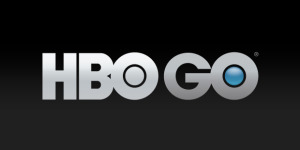In today’s ever changing media consumption world, one thing seems to be clear. People are starting to evaluate their cable bundle more than ever before. They look at their increasingly large cable bill, typically north of $75+ dollars, even for just one person, and wonder to themselves if they really need to have the service. A household with multiple TVs can even have cable bills north of $200+. Because cable and satellite companies like Comcast, Dish, DirecTV are having to pay more money than ever before for the rights to broadcast properties such as ESPN, TNT, USA Network, etc… they are having to increase the costs to the consumer. And because ESPN, TNT, USA Network are having to spend more money on sports programming rights, or are spending more money on original content production (versus simply buying shows in syndication) they are having to charge these cable and satellite operators more money than ever before. Either way, all of these factors are contributing to the rising costs in cable and the consumer is starting to show signs of malcontent. Some consumers are cutting their cable cords; while others, typically younger folks, aren’t ever even buying cable all together. This sudden change leads to an interesting question, if the consumer by and large decides to ditch their cable package, how can leading TV networks protect themselves and survive in this new world?
For HBO, the answer is by creating an over the top service (Hayes, 2014). HBO announced at a recent event for Time Warner Shareholders (HBO’s parent company) their intentions to make their HBO Go product available as an over the top solution for non paying cable customers in 2015. Previously, you could only have access to HBO Go if you were paying for HBO through your cable service. In 2015 they are going to make this app/service available to those individuals that don’t have cable. The price is going to be comparable to the price you would pay through your cable company, ie $10-$15 a month; so to HBO they won’t profit more or less directly from subscribers of either cable or their over the top service direct. The stated goal by Time Warner CEO, Jeff Bewkes, is to continue to play ball with the cable companies, who need HBO as part of their bundled packages for subscription, but the reality is that this is a step being taken by HBO to protect themselves in a world where consumers may rely solely on broadband to deliver them their favorite content (Kafka, 2014).
HBO wants to get the consumer in a broadband world used to paying them $10-$15 a month so that if everyone converts to the broadband based product, consumer pricing does not change, therefore HBO still sees the same revenues. Yes, this product may start out only serving the 20+ million homes that don’t have cable (roughly 100+ million homes have cable) and provide HBO a nice increase in revenue and subscription additions, but its more about their need to create products that will appeal to those who are thinking about cutting their cable subscriptions. And HBO stands to gain in subscription from this by removing the barrier of entry to their product, ie cable packages. Maybe now events like the Game of Thrones season finale won’t be the most pirated show of all time (McGregor). While surely this makes the content creators happy that people are willing to risk jail time to watch their show; HBO understands that they simply need to offer these folks a digital only service if they wanna watch that show so badly. Obviously, not all pirates will pay for the service, but some may, which only increases revenues.
To survive in a world where cable packages are unbundled, and the consumer can get enough of their content over the top through streaming services, TV networks must be mindful. They need to start laying the foundation now by creating compelling over the top products. While they can start out being products only accessible through cable subscriptions, much like HBO, over time they may want to think about letting those that don’t have cable available to buy. Then, as more and more consumers break free from cable packages, they’ll have a product waiting for them if they still deem Adult Swim, nickelodeon, etc… must have content providers. Yes, this will piss off the cable companies like Comcast, etc… but don’t worry, they’ll just increase the cost of broadband 3x and get their money…
So, what do you guys think the future of TV is? Will everything be over the top, accessible by broadband? Or will cable TV still survive as we know it 10-20 years from now?
References:
Hayes, D. (2014). Are CBS and HBO Streaming Service Plans Actual Steak or Mostly Sizzle? Retrieved from http://www.forbes.com/sites/dadehayes/2014/10/16/are-cbs-and-hbo-streaming-service-plans-actual-steak-or-mostly-sizzle/
Kafka, P. (2014). You might be able to pay for HBO without paying for Cable. All Things D. Retrieved from http://allthingsd.com/20130930/you-might-be-able-to-pay-for-hbo-without-paying-for-cable-but-youre-still-going-to-pay-the-cable-guy/#
McGregor, J. (2014). Game of Thrones finale becomes most pirated show in history. Forbes. Retrieved from http://www.forbes.com/sites/jaymcgregor/2014/06/17/game-of-thrones-season-finale-becomes-most-pirated-show-in-history/


5 Responses to HBO Going Over The Top